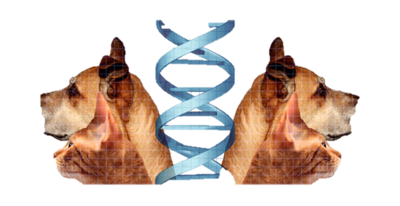Pet cloning has gained both popularity and controversy in recent years. Thanks to advancements in cloning biotechnology, it is now possible to replicate pets, giving owners the opportunity to bring back a beloved companion. While this concept has excited some animal lovers, it has also sparked ethical concerns regarding animal welfare, the science behind the procedure, and the emotional impact on those involved.
In 2024, Gemini Genetics in Shropshire, England,opened its doors as the first pet cloning clinic in the U.K., marking a major step forward in the field.Despite the European Union (EU)’s strict cloning regulations, this development reignites the long-standing controversy that has shaped the European Union's strict regulations on animal cloning. While these regulations don't specifically address pet cloning for companionship, they enforce a stringent ban on cloning animals for food production and research.
Due to these rules and the ethical concerns surrounding the process, pet cloning remains a sensitive and divisive issue in British society. Despite the controversy in the U.K., Brits have historically looked to the United States for assistance in cloning their pets. Gemini Genetics has partnered with ViaGen Pets in Cedar Park, Texas, the leader in global pet cloning and DNA preservation services.
ViaGen Pets is the most prominent lab in the United States, offering cloning services worldwide. Since its establishment in 2015, ViaGen Pets has successfully cloned over 1,000 dogs and cats globally. Through this new partnership, Gemini Genetics sends the harvested DNA samples to ViaGen, who then completes the cloning process. After the pup is born and has been weaned, British pet owners get to live out their dream of keeping their beloved fur babies forever.
The partnership between ViaGen Pets and Gemini ensures that their practices are at the forefront of the industry. Pet owners can take comfort in knowing that their pet's genetic samples are handled with the highest standards of preservation and regeneration techniques.
Sooam Biotech labs in Seoul, South Korea, had developed the techniques for cloning dogs, and ViaGen, through its subsidiary start Licensing, acquired the rights to use and further develop this technology for cloning pets in the United States.
The process
Tissue samples from a pet can be collected while the animal is still alive and healthy or within five days of its passing. Laboratories like Gemini in the U.K. and ViaGen in the U.S. offer genetic preservation services. The pet’s genetic material can be cryogenically stored almost indefinitely. The initial cost to prepare the DNA for storage is $1,600, with an annual storage fee of $150.
Once the tissue samples are received, they are processed for either storage or cloning. The DNA is extracted from the donor samples by removing the nucleus, which contains the genetic material, and transferring it into a donor egg cell that has had its nucleus removed. This new cell is then either cryogenically preserved using liquid nitrogen or prepared to begin the cloning process.
The cell is stimulated by electrical impulses to form an embryo, which is then implanted into the womb of a surrogate mother. The entire cloning process through birth and weaning takes about a year to complete.
While the process may seem straightforward, it is highly stressful for both the animal donating the egg and the surrogate mother, often causing severe pain and distress. Additionally, the success rate of producing a healthy cloned pet is quite low. According to a 2018 study by Columbia University in New York, the average success rate is only 20 percent.
This cloning process only replicates the physical appearance of the original pet. Although the new pet will share identical DNA, it will be raised in a different environment with unique experiences, all of which influence its behavior and temperament. Factors like socialization, training, and daily interactions will shape the cloned pet's personality in distinct ways. Therefore, while a cloned pet may look exactly like the original and share genetic traits, it may not have the same personality.
What is the total cost?
While there's no price on love, the cost of cloning your pet can certainly be eye-popping. The entire process typically ranges from $50,000 to $80,000. Cloning a cat starts at around $30,000, while a dog clone will cost you about $50,000. For those wanting to clone a beloved horse, the price tag jumps to a hefty $85,000.
These high costs might make adoption a more appealing option for those looking to bring a pet into their home. The Royal Society for the Prevention of Cruelty to Animals (RSPCA) advocates for adoption from the thousands of shelters that house pets in need of loving homes.
As pet cloning becomes more popular, it may exacerbate the ongoing overpopulation crisis of homeless animals. PETA, People for the Ethical Treatment of Animals, strongly encourages adoption and refers to pet cloning as "a cruel money-making fad."
Pet cloning offers intriguing possibilities but also brings forth significant ethical concerns. The process raises important questions about animal welfare, the unpredictable personalities of cloned pets, and the long-term effects on both the animals involved and society.
As pet cloning becomes more accessible, it's crucial for consumers to be aware of the emotional, ethical, and financial considerations, as well as the potential risks. Whether pet cloning becomes a mainstream practice or stays a niche service, it's clear that the conversation around it will continue to evolve alongside advancements in technology and shifts in public opinion.







(0) comments
Welcome to the discussion.
Log In
Keep it Clean. Please avoid obscene, vulgar, lewd, racist or sexually-oriented language.
PLEASE TURN OFF YOUR CAPS LOCK.
Don't Threaten. Threats of harming another person will not be tolerated.
Be Truthful. Don't knowingly lie about anyone or anything.
Be Nice. No racism, sexism or any sort of -ism that is degrading to another person.
Be Proactive. Use the 'Report' link on each comment to let us know of abusive posts.
Share with Us. We'd love to hear eyewitness accounts, the history behind an article.